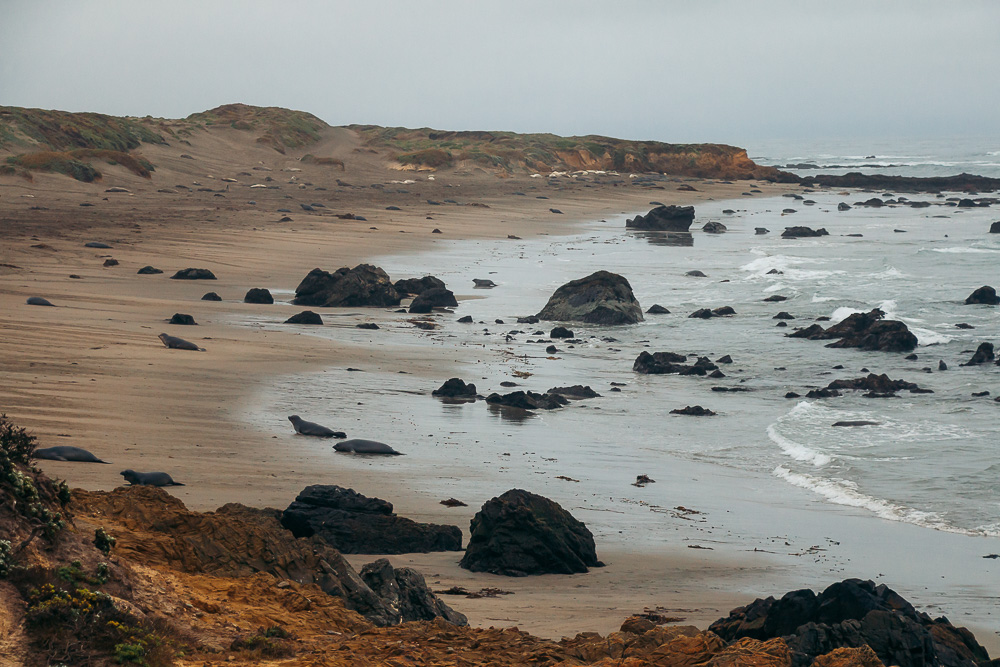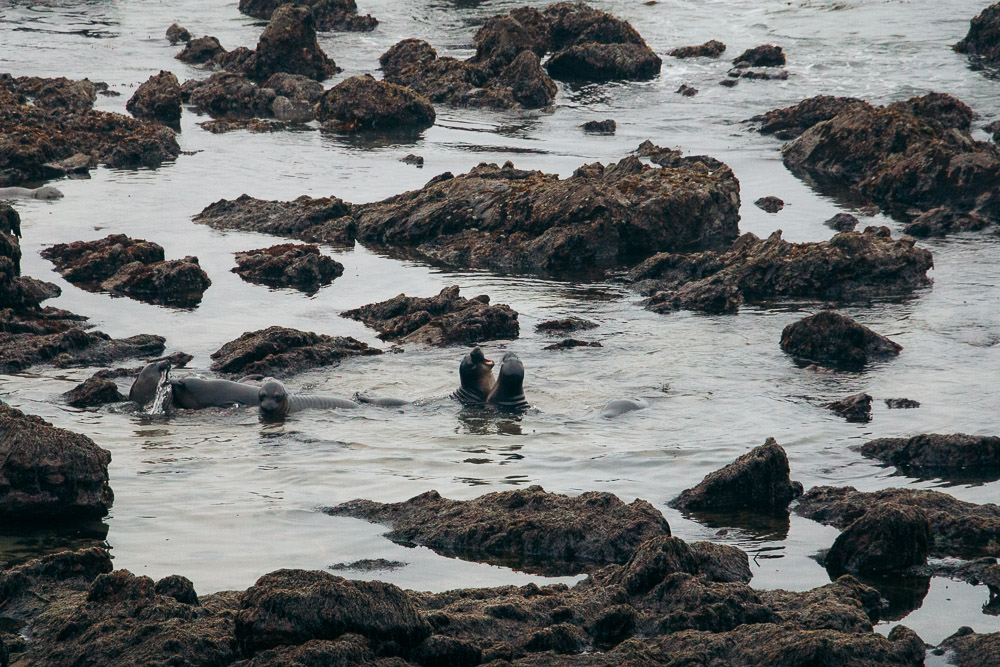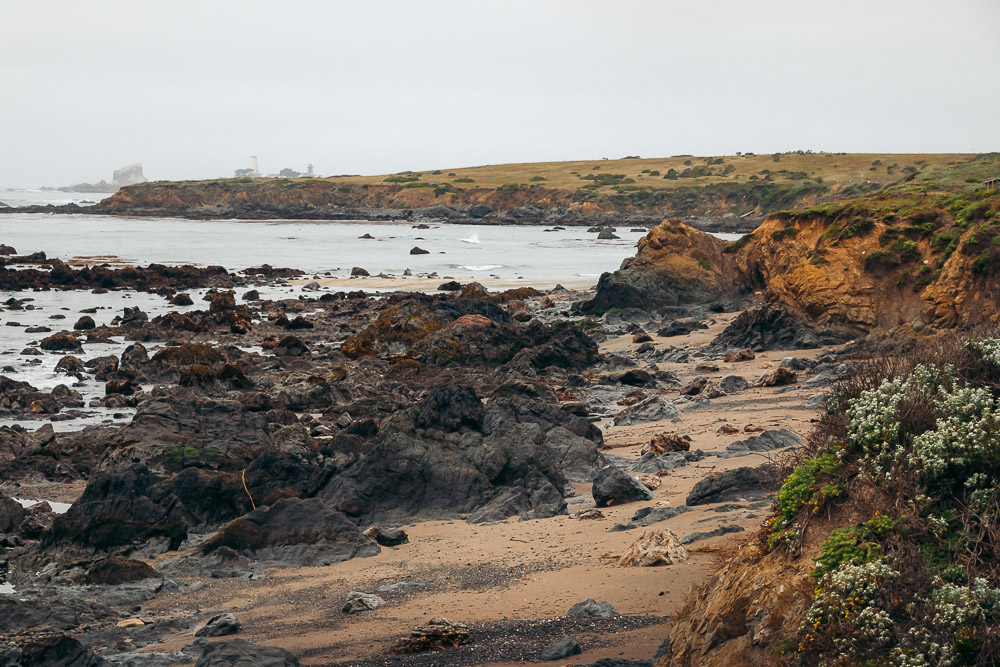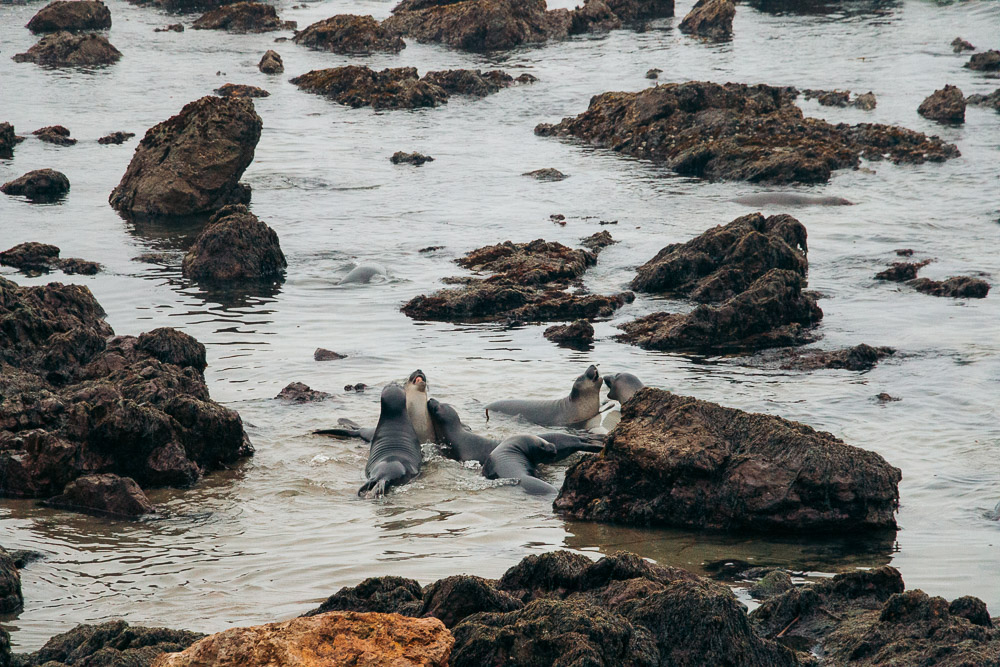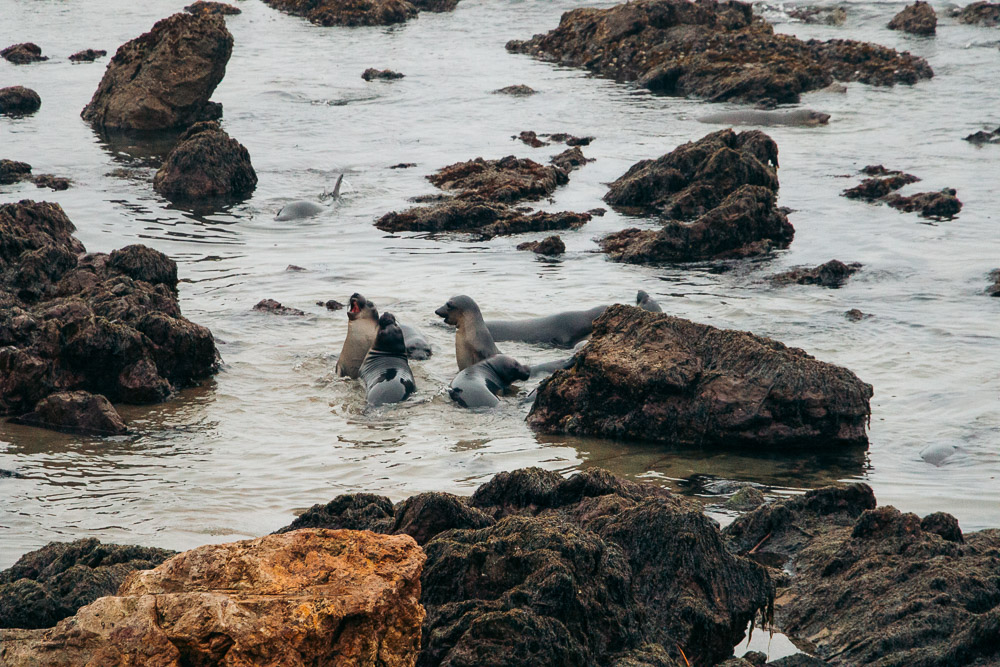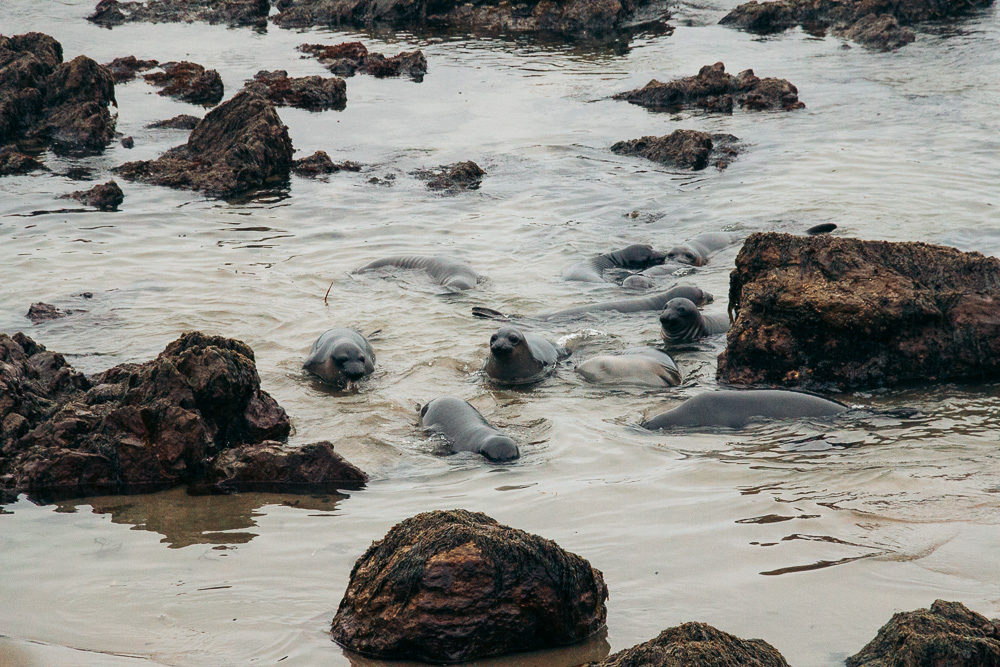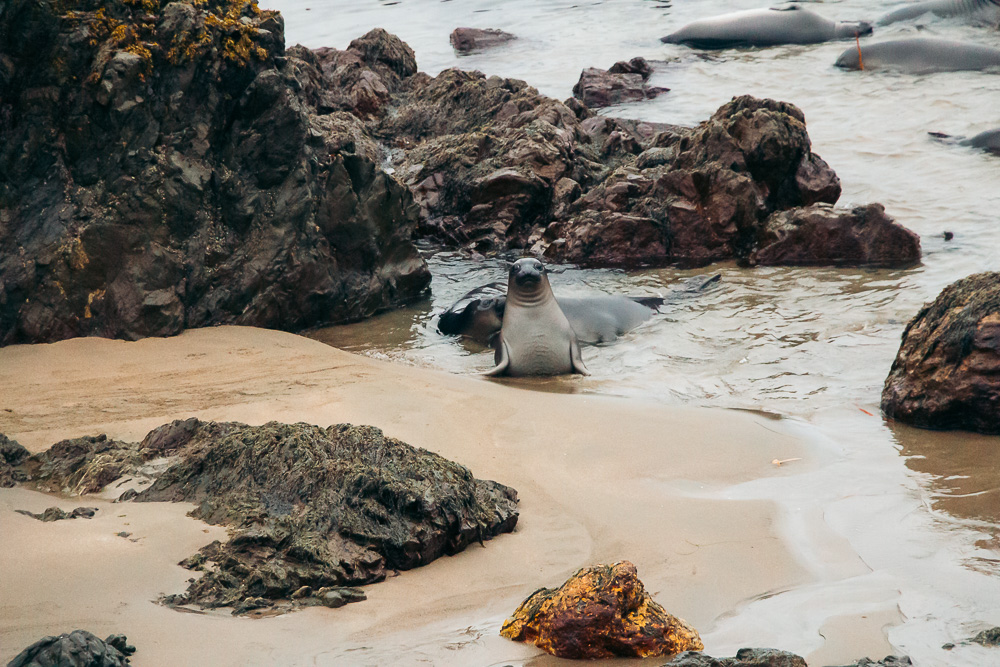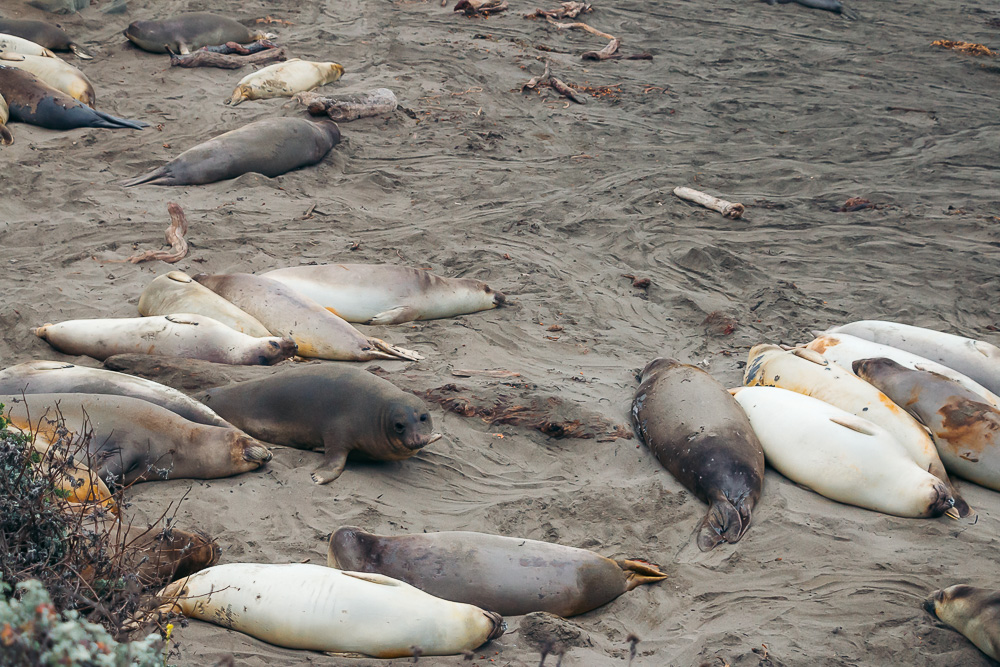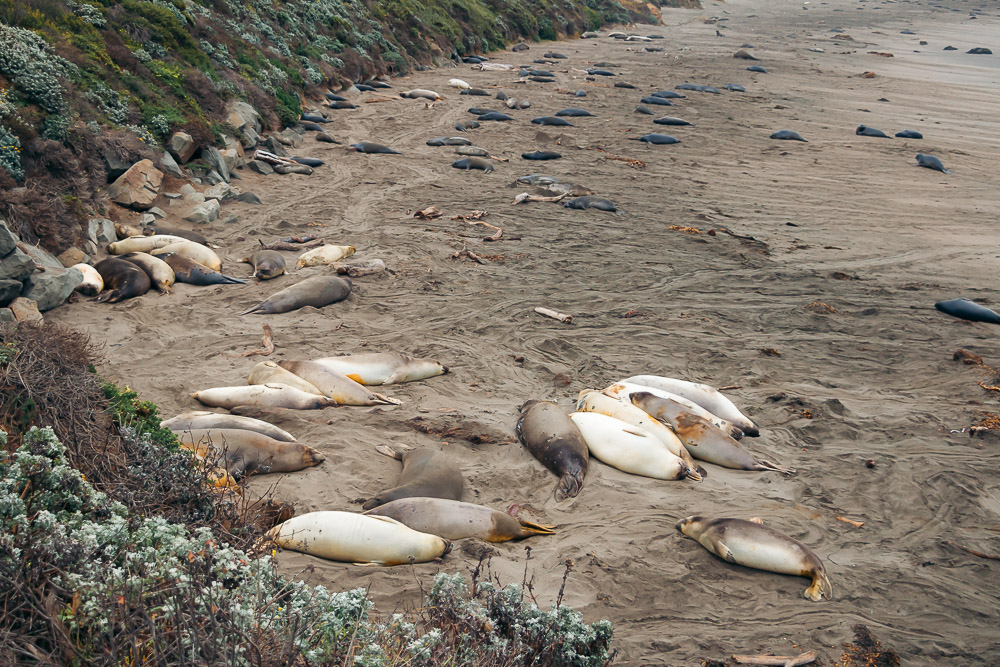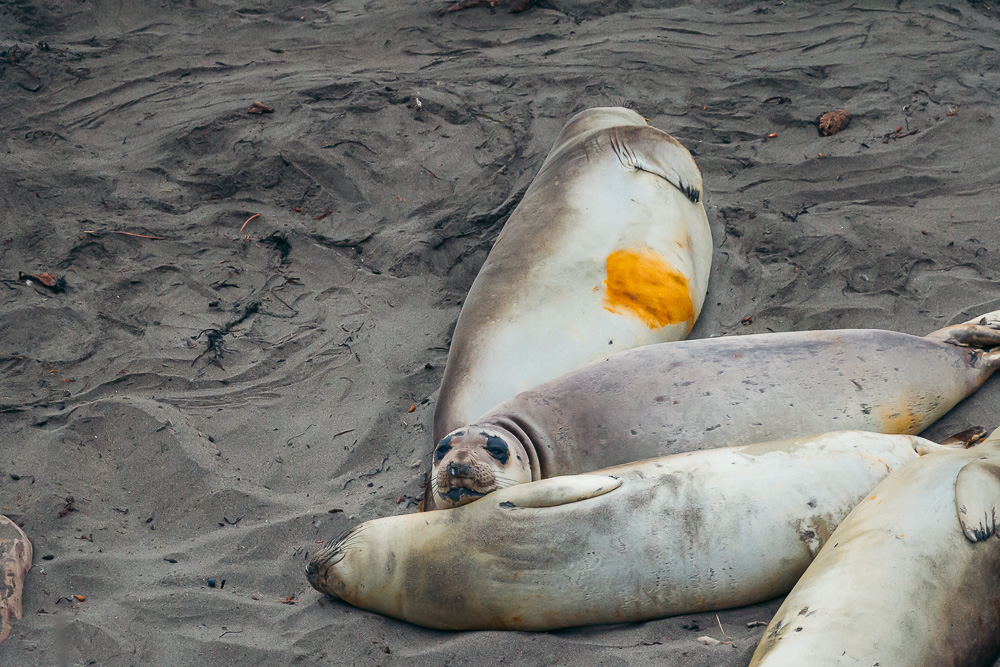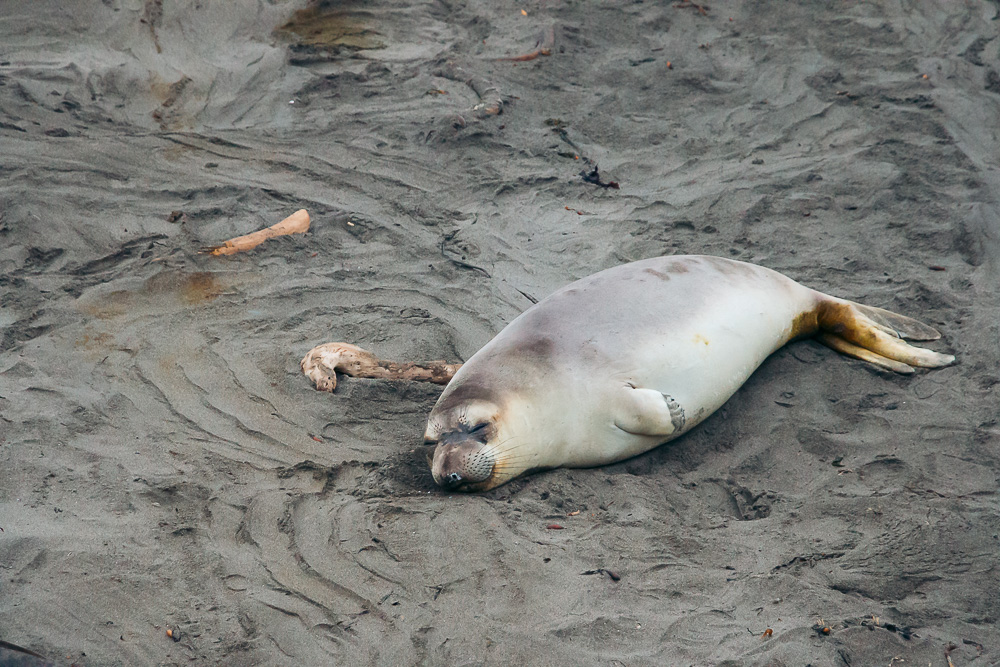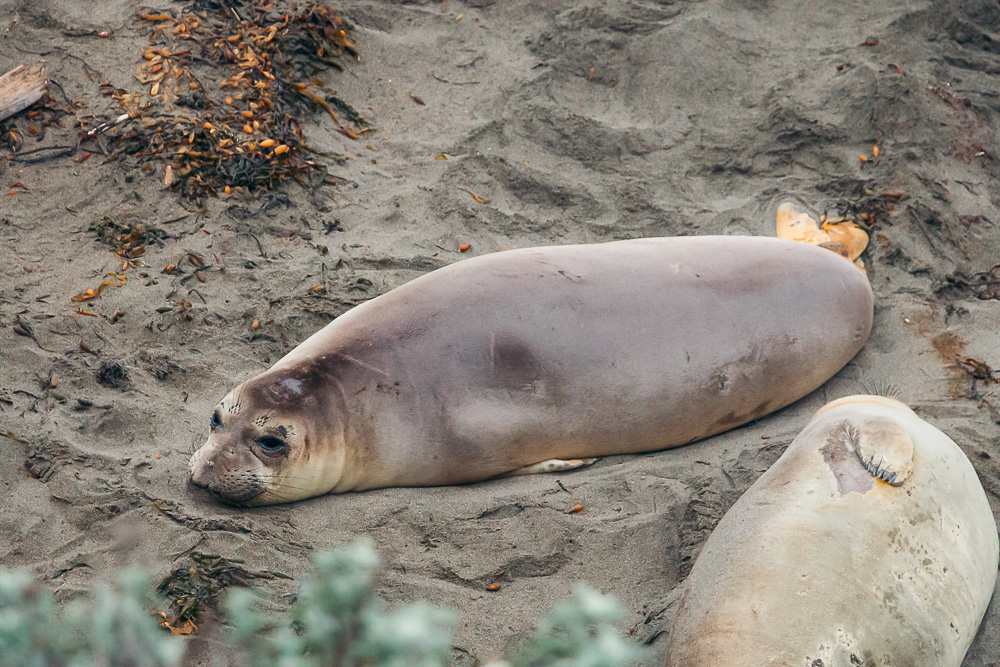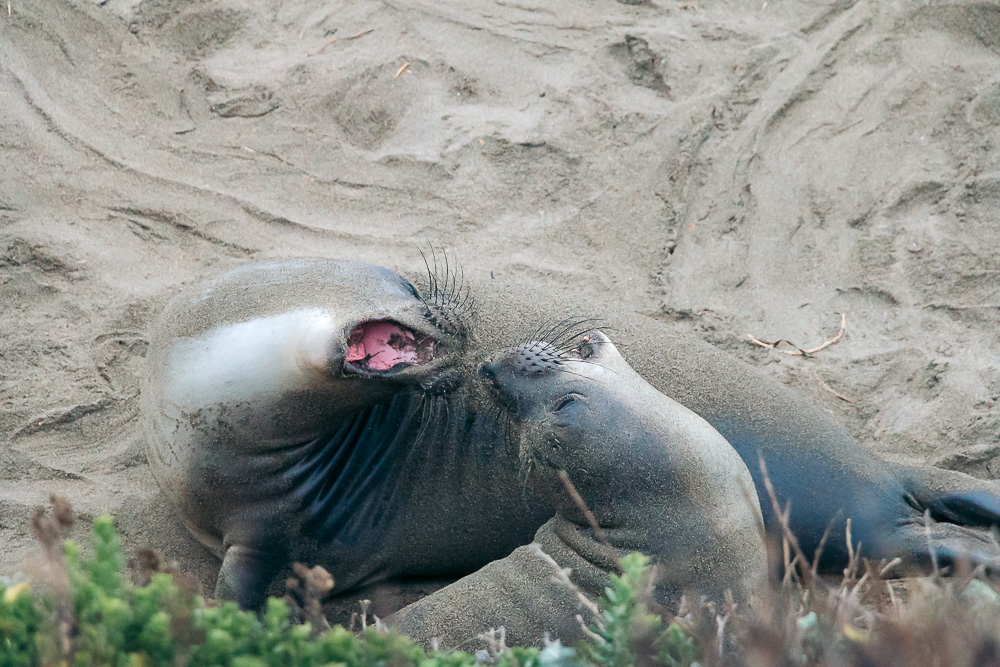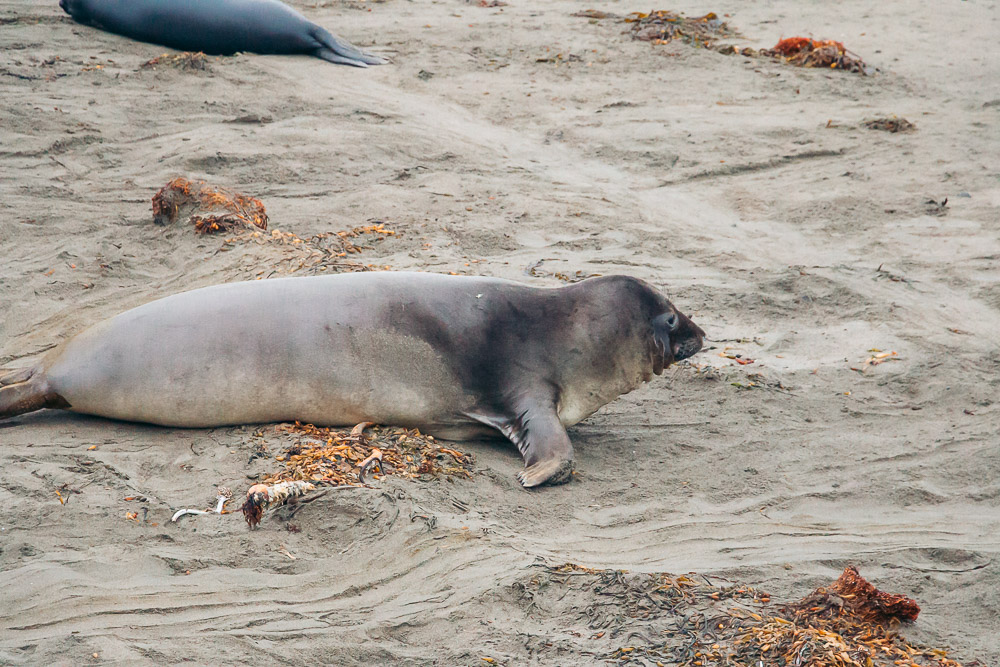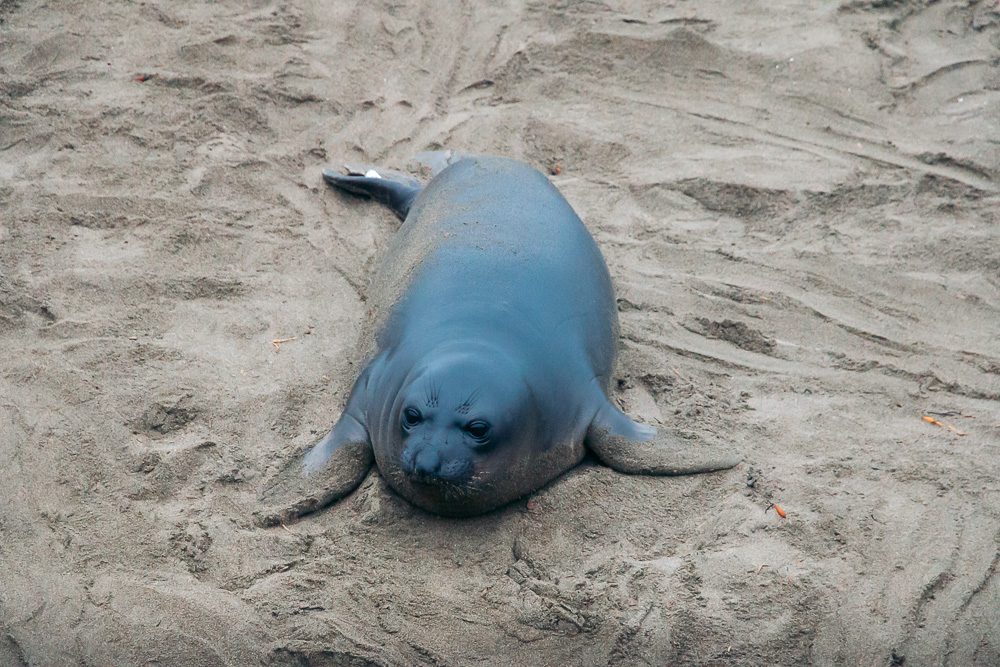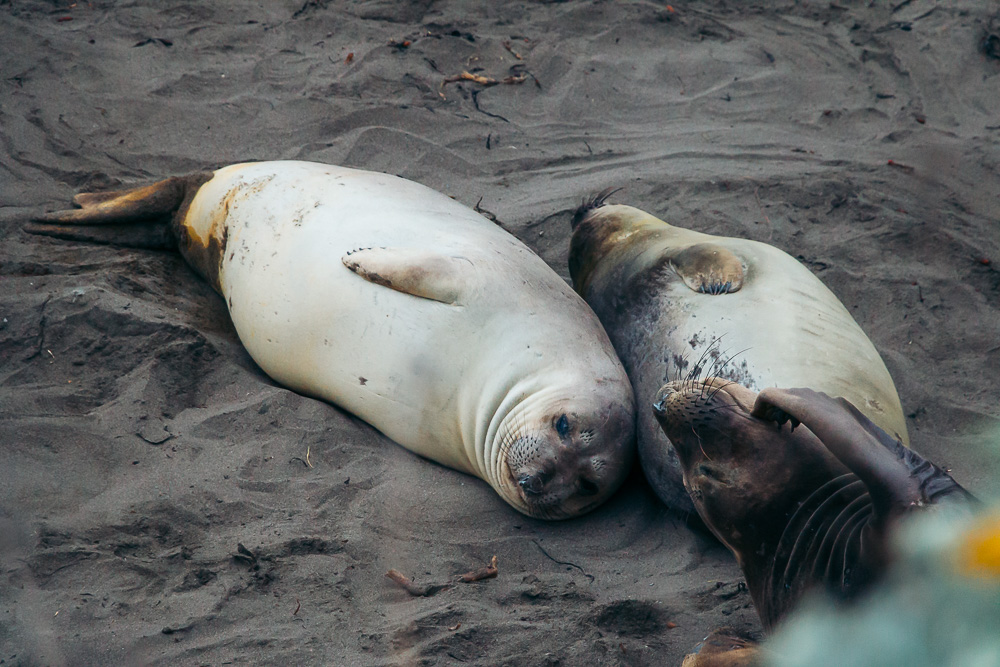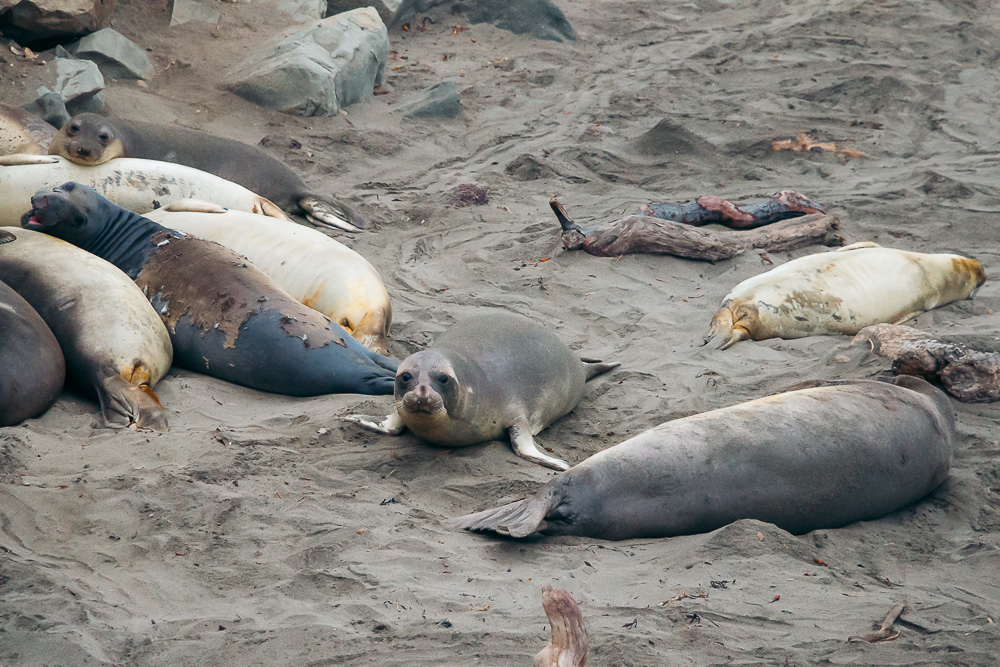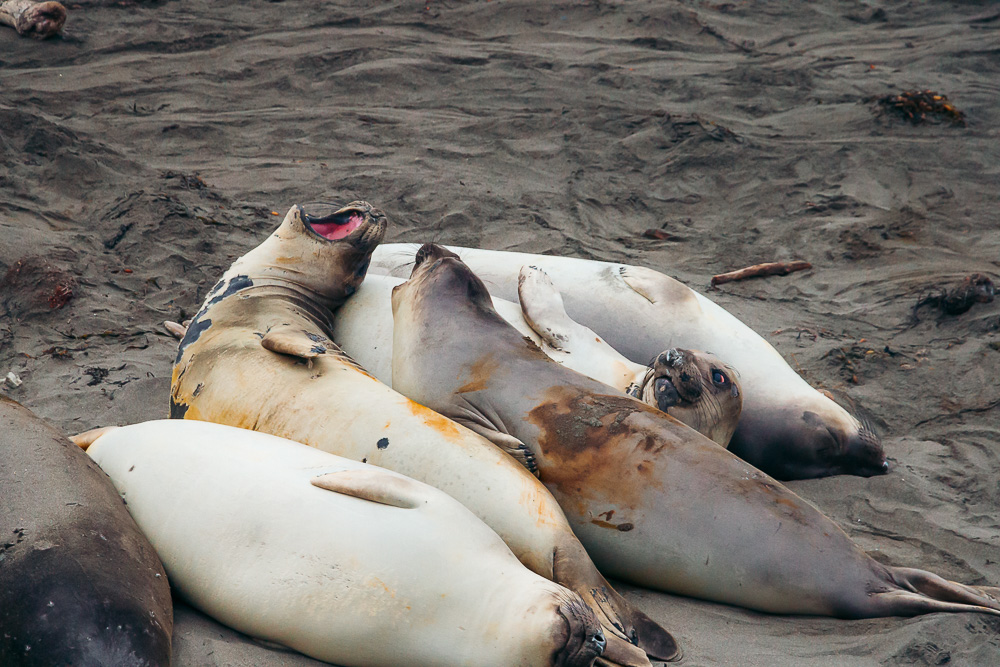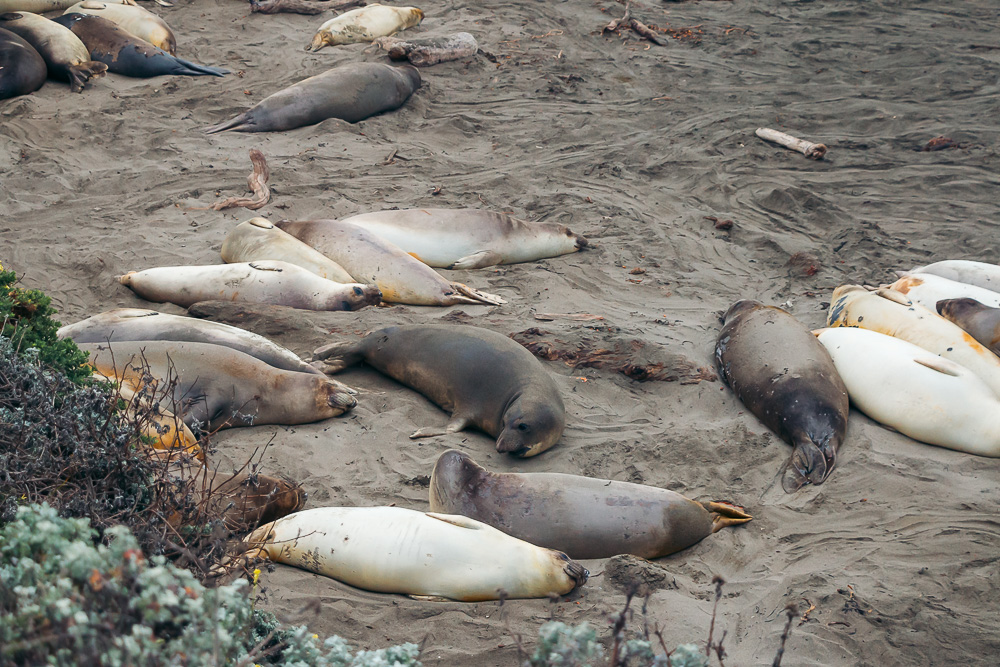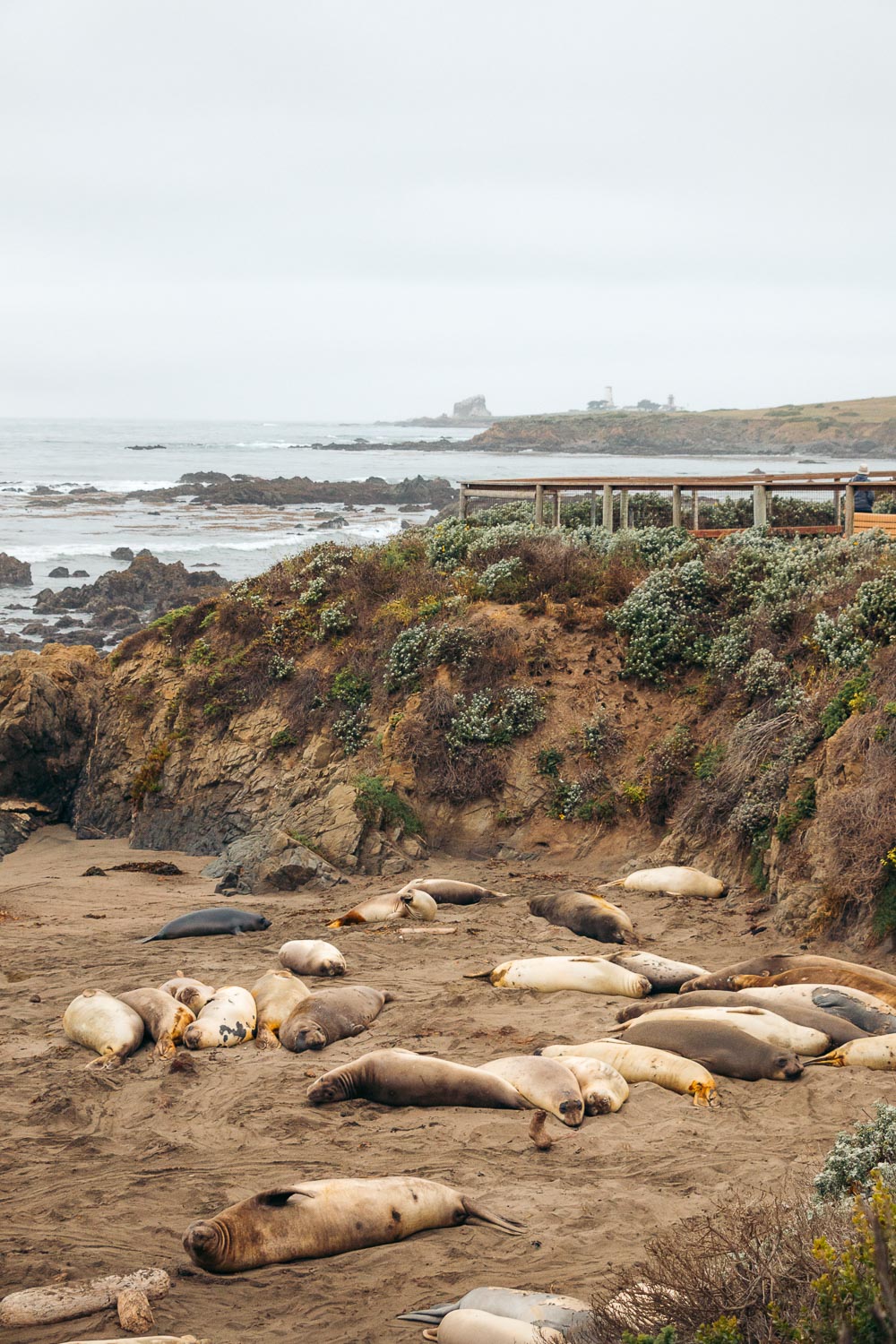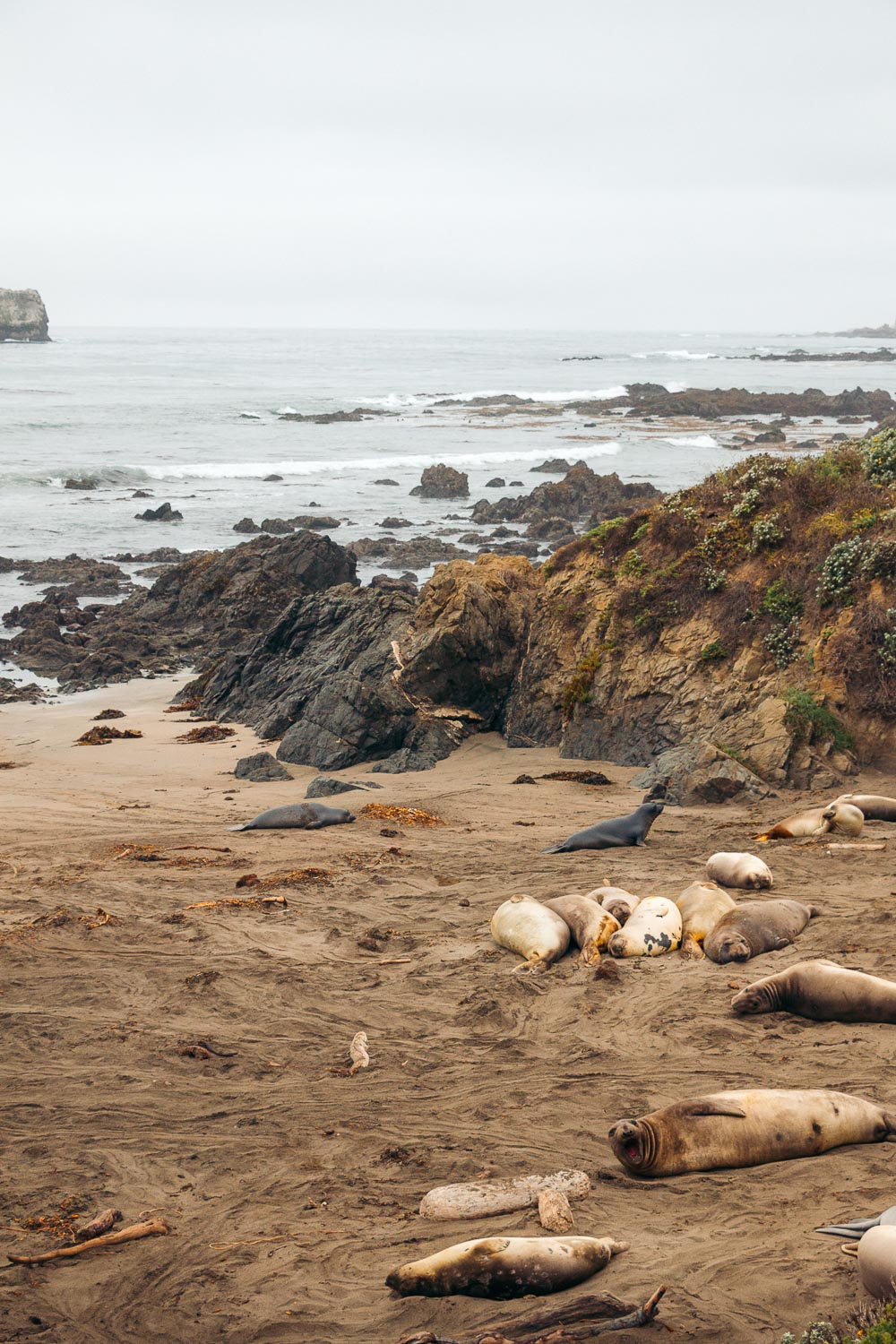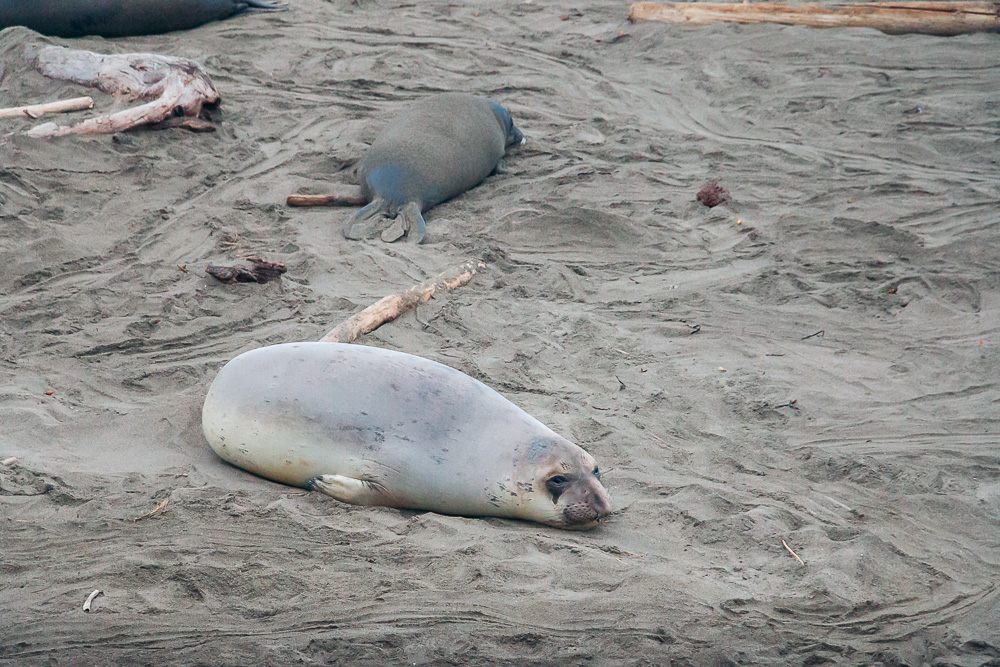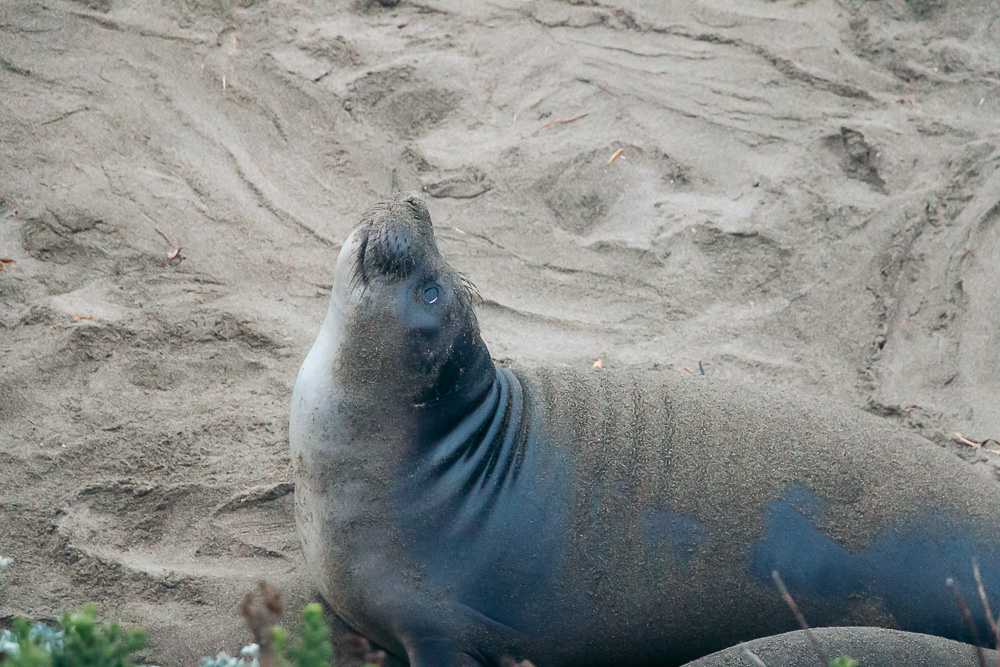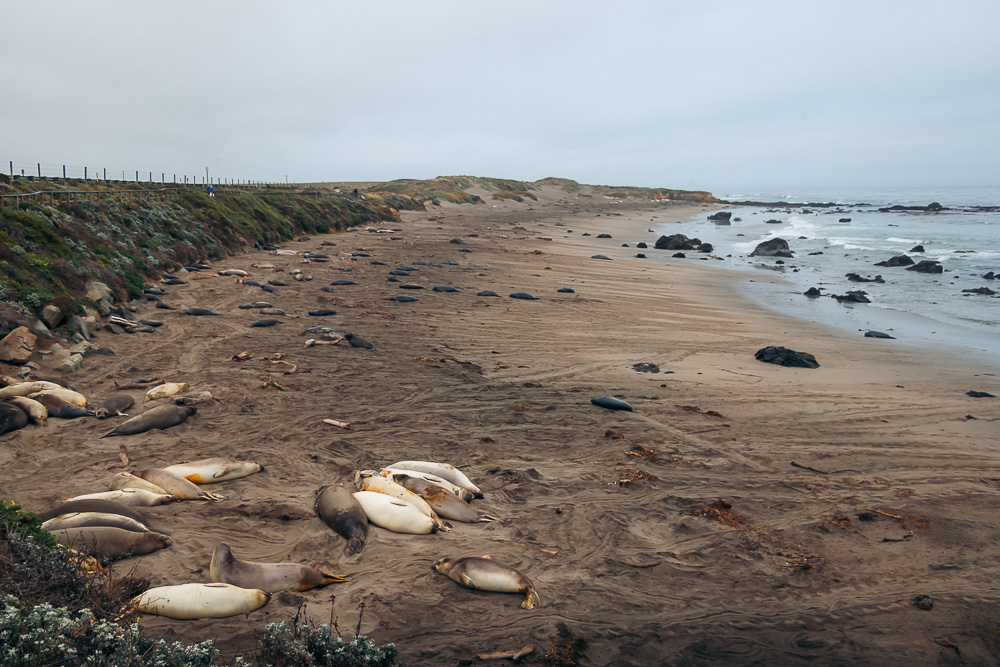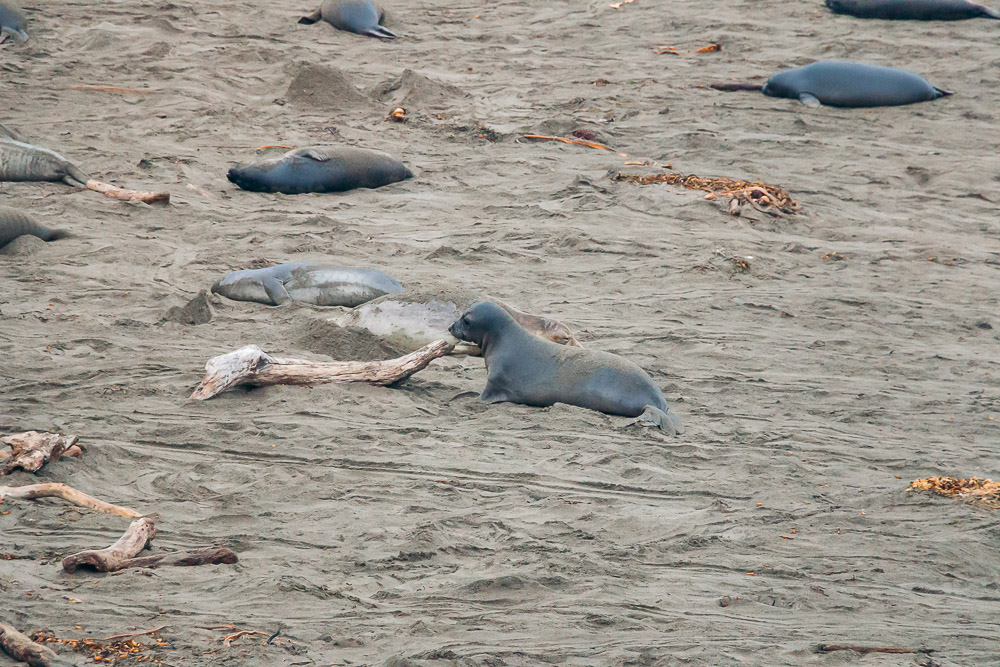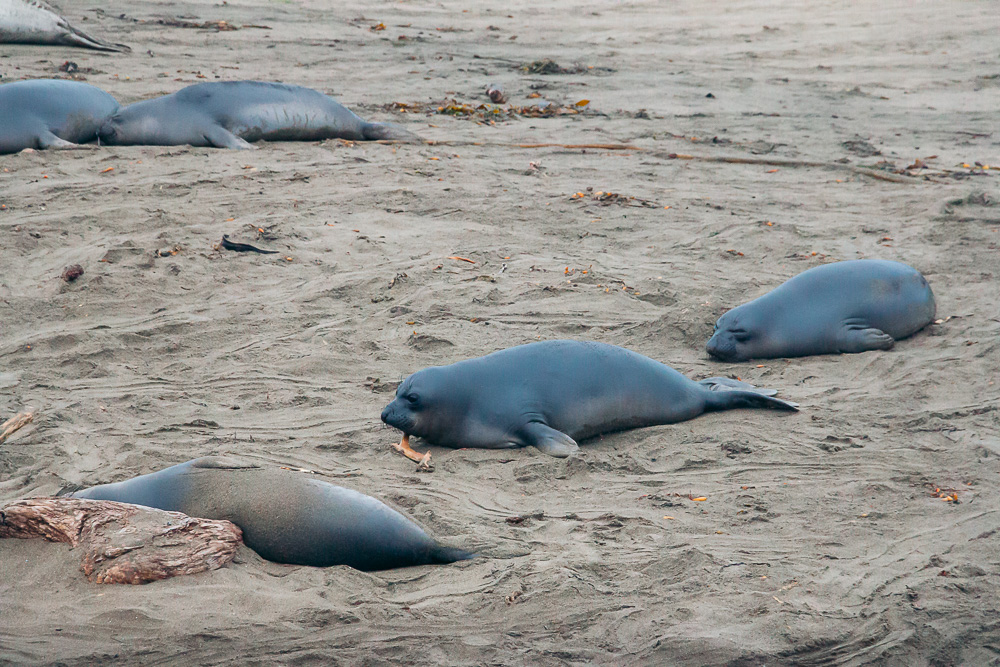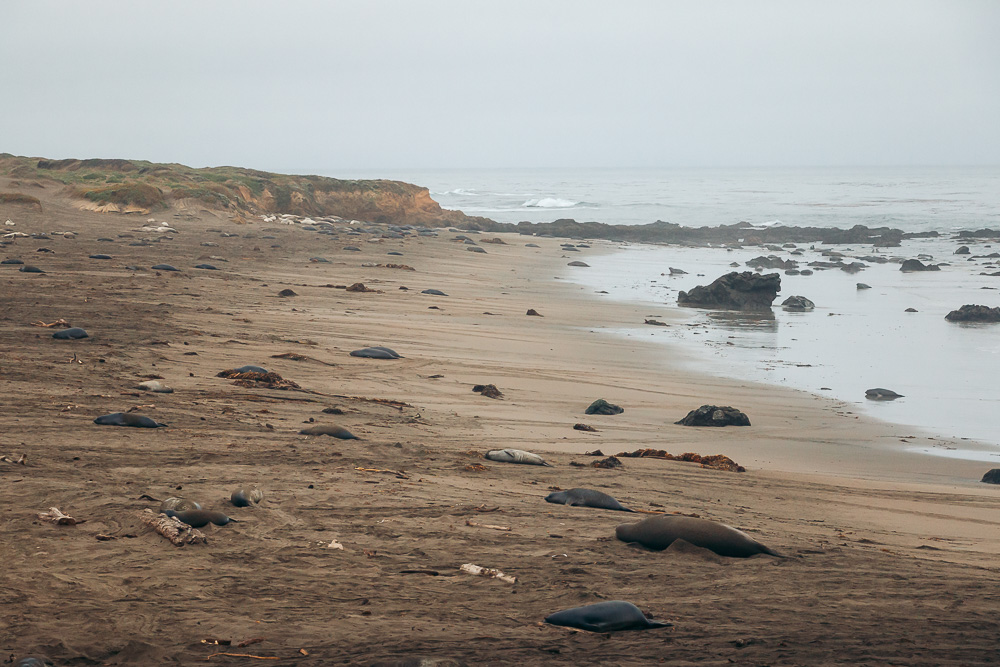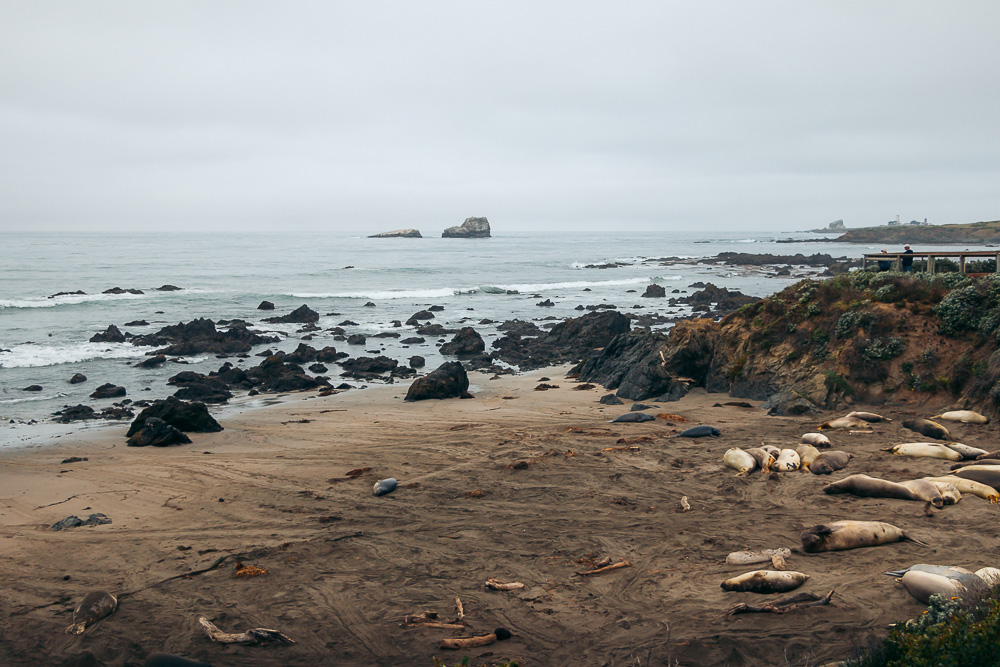For more than 30 years, northern elephant seals have been using the Piedras Blancas Elephant Seal Rookery near San Simeon as a safe haven for their semi-annual haul-outs.
Last updated: April 3, 2025
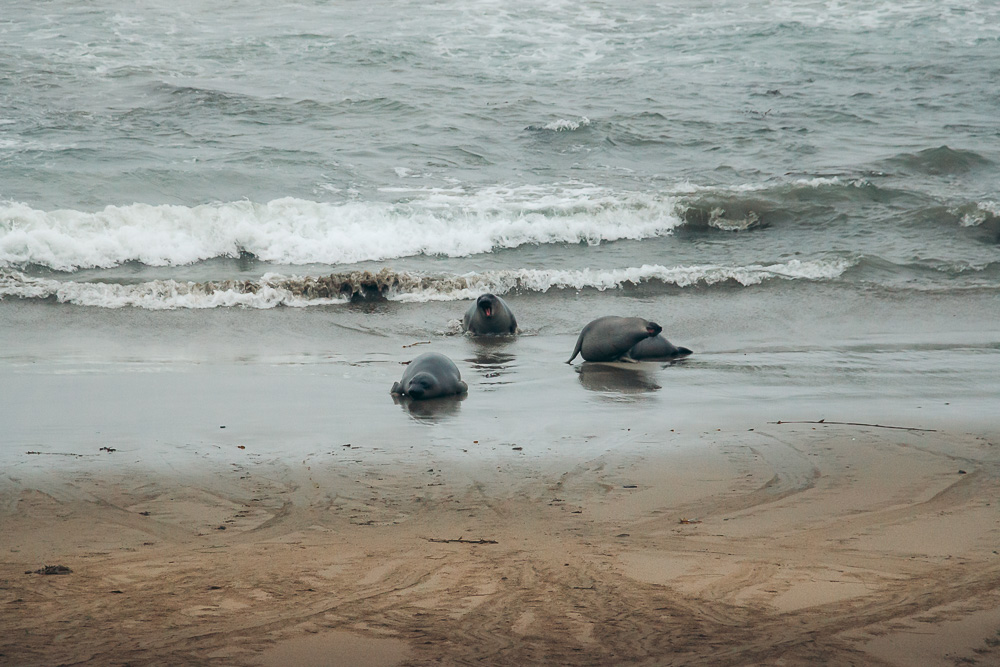
Where to Find Northern Elephant Seals Near San Simeon
Viewing seals is not an uncommon thing on the California coast. Beaches in La Jolla, a quintessential village in San Diego, have sheltered California sea lions and Pacific harbor seals for decades. The fin-footed mammals can also be spotted on California’s Channel Islands.
In the northern part of the state’s scenic Big Sur Drive, the area along the Sea Lion Point Trail in Point Lobos State Natural Reserve provides an appropriate environment for the seals to molt and breed on the land.
The elephant seals, however, are rare, even for sunny California. In fact, not that long ago these seals were almost extinguished. Yet somehow, they managed to survive. Their growing numbers have been hauling out in different parts of the coast, including some islands off Baja, Mexico.
Nearly 25,000 northern elephant seals of the estimated total population of 250,000 use the Piedras Blancas Northern Elephant Seal Rookery near San Simeon as their resting location.
Unforgettable Experience of Photographing Northern Elephant Seals
Watching wildlife is always intriguing. No matter how many times we gazed at the local seals in San Diego, these animals still instill a complete awe and admiration in us. So when I came across the Piedras Blancas Northern Elephant Seal Rookery in San Simeon, I knew this place had to be on top of our California road trip itinerary.
Anticipating a remarkable sight, I packed extra camera batteries and memory cards. Because once you start photographing California wildlife, you simply can’t stop.
Indeed, an early morning visit to the Piedras Blancas Northern Elephant Seal Rookery turned out to be such an incredible photographic experience. You can admire some of these adult and baby northern elephant seals in the photo gallery below.
Northern Elephant Seals at Piedras Blancas Rookery
Known for their extruding noses or proboscises, the northern elephant seals are some of the largest species of the seal family. An adult male elephant seal can weigh anywhere from 3,500 to 5,000 pounds (1,600 to 2,300 kilograms). Their length that can reach up to 16 feet (5 meters) is another feature that sets these mammals apart from the rest of the seals.
Female elephant seals are smaller. They weigh around 1,800 pounds (800 kilograms) and are about 12 feet (4 meters) long. Yet despite representing the “weaker” part of the population, the females are the most enduring swimmers.
At the Piedras Blancas Rookery, the elephant seals neither eat nor drink, except for nursing pups. They live off their blubber, the fat stores in the body. At sea, however, the elephant seals don’t have rest. The mammals are on a constant search for food.
The female elephant seals need these sea fares even more than the males. The nursing mothers lose nearly 40% of their body weight during one month on the land. Thus, the “ladies” swim farther away from the Piedras Blancas Northern Elephant Seal Rookery where they feed on smaller fish, such as lanternfish and some squid, at 600-3,000 deep.
The male elephant seals have to overcome their own hurdles before returning to the rookery. While they hunt for prey along the continental margin, at depths from 500 to 2,000 feet, these elephant seals often become food for orcas and white sharks also foraging in these waters.
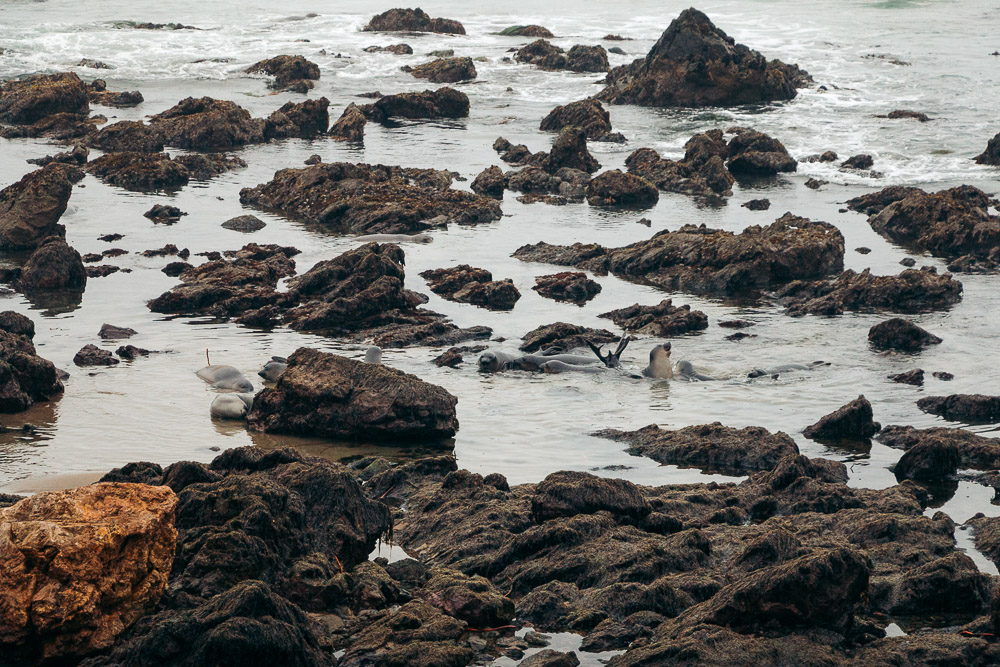
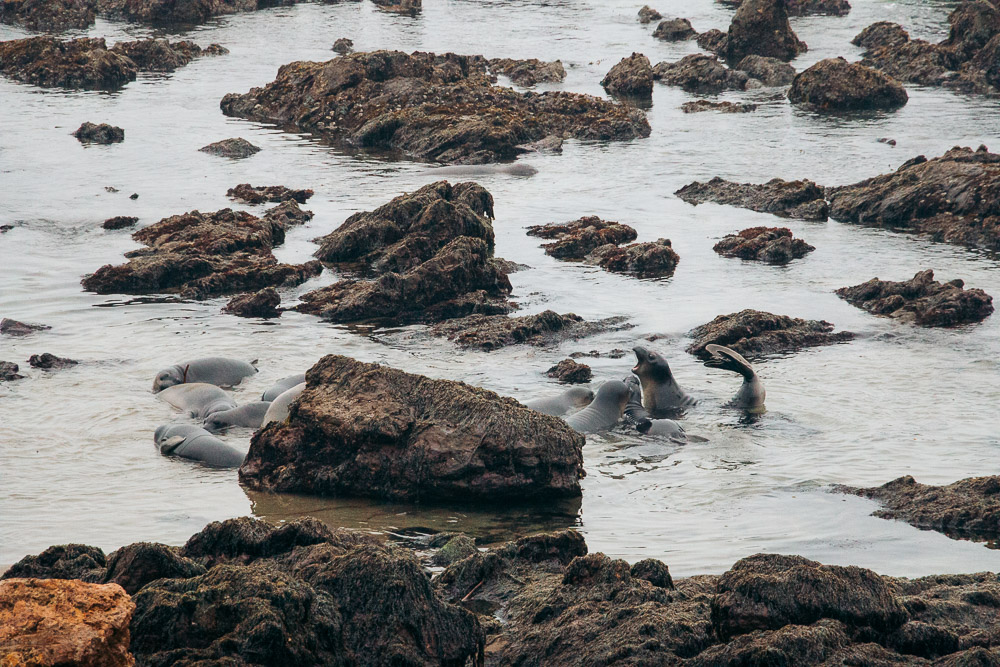
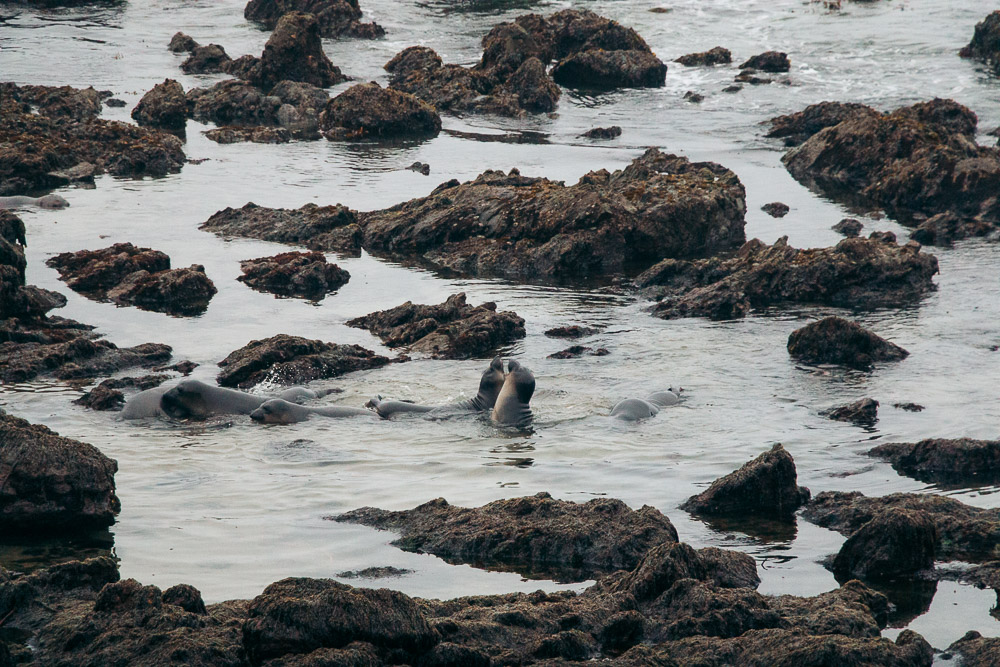
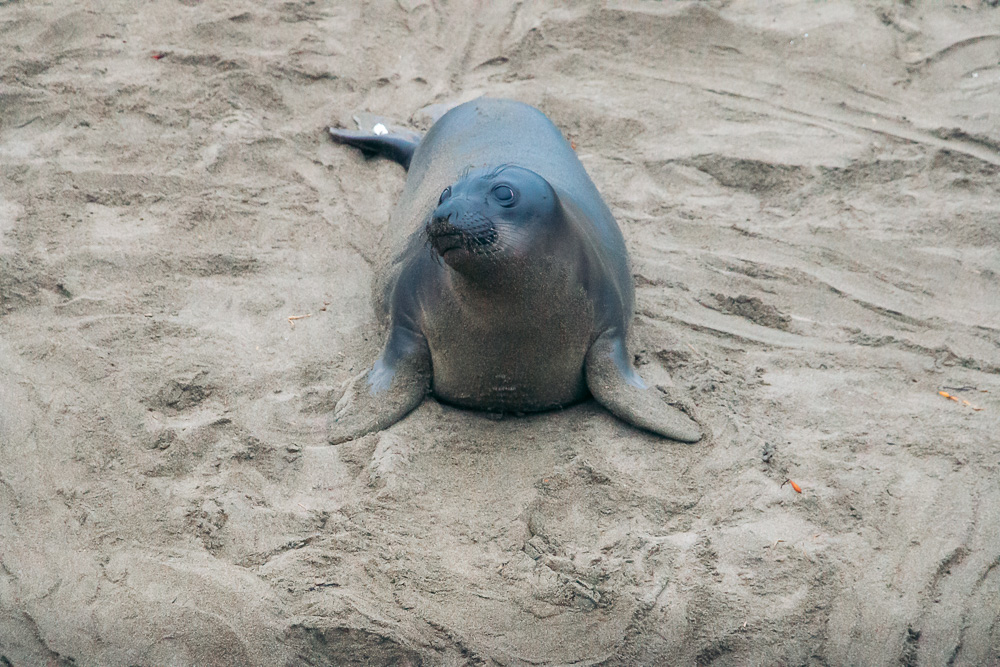
The Best Time to See Northern Elephant Seals at the Piedras Blancas Rookery
At sea, the elephant seals live a solitary life. Once back at the rookery, the mammals “re-establish” their social network. The elephant seals are never on the beaches near San Simeon at the same time. Nevertheless, an average elephant seal hauls out two times a year to mate, birth, and molt.
You have more opportunities for northern elephant seals photography from January through May. During this time, thousands of the mammals winter at the Piedras Blancas Northern Elephant Seal Rookery. Far fewer elephant seals linger in the San Simeon area in July and August.
How to Visit the Piedras Blancas Northern Elephant Seal Rookery
The second (Hearst Castle is the first) most photographed place in the San Simeon region, the Piedras Blancas Northern Elephant Seal Rookery sits roughly 5 miles north of the coastal village. The area is free to visit for both the marine mammals and humans.
Interestingly enough, San Simeon’s beaches couldn’t possibly attract so many spectators a few decades ago. The fate of the region changed drastically in 1990 when a large colony of the northern elephant seals claimed the area as their breeding and birthing location.
Today, the Piedras Blancas Northern Elephant Seal Rookery is the only destination in the world that offers easy access and plenty of opportunities to observe and photograph these mammals from the land.
A group of local marine wildlife enthusiasts and researchers make sure that the gift bestowed on them doesn’t go to waste. Volunteers and knowledgeable docents frequently visit the rookery, pick up trash, and interact with the visitors and wildlife photographers.
The Piedras Blancas Northern Elephant Seal Rookery’s guests must do their part and follow visitor guidelines.
- No walking off the trail and walkways is allowed.
- Simultaneously, make sure to remain quiet in order to not disturb the animals.
- The northern elephant seals may look awkward on the land, but they are wild animals and can be dangerous. So never approach the mammals.
- Furthermore, keep your dogs on leash at all times and never feed the wild animals whether it’s an elephant seal or a hare.
Viewing Elephant Seals at the Piedras Blancas Rookery in San Simeon: Photo Gallery
Thank you for lingering here for so long. I won’t take any more of your precious time. So sit comfortably in front of your computer and enjoy the Northern Elephant Seal photo gallery that you came here for in the first place.
